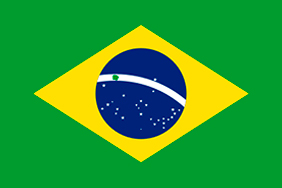The bill was approved by the National Congress. After implementation, Brazil will have the largest emissions trading system in Latin America.
After years of discussion, Brazil is close to creating its regulated carbon market, a decisive step toward the country’s sustainable development. Ambipar (AMBP3), the leader in environmental management, celebrates the approval of this bill by the National Congress, which will encourage companies and sectors to reduce their emissions, actively contributing to environmental protection and providing rules to enhance the integrity and socio-environmental impact of carbon credits in the Voluntary Market.
According to Plínio Ribeiro, Head of Carbon Solutions at Ambipar Environment, the approval of Bill No. 182/2024 demonstrates the unity of our leaders in creating a favorable regulatory environment.
“This bill represents an important progress for Brazil to achieve the goals set by the Paris Agreement. At the same time, the interoperability between the Regulated Market, focused on public sector initiatives, and the Voluntary Market, aimed at private initiatives, as outlined in the text, is the solution to address the main source of greenhouse gas (GHG) emissions in Brazil: illegal deforestation,”, said the executive.
Under the proposed regulation, companies that emit more than 10,000 tons of carbon dioxide equivalent (CO2E)1 per year will be required to establish an emissions monitoring plan and submit periodic reports, while companies emitting more than 25,000 tons of CO2E per year will need to not only report and monitor their emissions but also offset them through emission permits distributed either free of charge or for a fee by the government. It is estimated that around 5,000 companies in Brazil emit more than 25,000 tons of CO2E. Therefore, the Brazilian Regulated Market, when implemented, will become the largest carbon market in Latin America.
Another important aspect of the bill is the establishment of sectoral emission limits.
“One of the most relevant points of the document is setting sectoral caps. The regulator generally starts with the most emission-intensive sectors. This is the great challenge of public policy, where you set this limit (cap). Civil society must be very attentive to ensure these numbers are feasible, but not so high as to negatively impact the competitiveness of these sectors,”, he explains.
The regulatory framework also sets key points to ensure legal security and increase the integrity of the Voluntary Carbon Market in Brazil. It defines clear rules on the ownership and taxation of credits, preventing double counting, and ensuring the rights of traditional communities, landowners, and indigenous peoples. It also includes a public project registry and grants states the freedom to create their own programs, while protecting the right to exclude private areas from public accounting. Lastly, it aligns Brazilian legislation to enable the commercial trading of credits in the global market.
Since the start of the debate on the creation of a regulated carbon market in Brazil, Ambipar has been actively involved, sharing its technical expertise with Parliament, the Federal Government, States, and civil society.
“We will continue to work to strengthen this market in Brazil and ensure that the regulation meets the expected needs. By 2030, between 35% and 50% of emission reductions must come exclusively from Nature-Based Solutions. That’s why we are developing projects that promote emission reductions through forest conservation and emission sequestration through reforestation, and we are ready to supply the new Brazilian Regulated Market with carbon credits of high socio-environmental integrity,” Ribeiro concludes.
![]()
Plínio Ribeiro
Head of Carbon Solutions
Ambipar Environment
Do you have any questions or would you like to discuss the topic further?
Our team has highly experienced technical professionals who are fully available to provide additional explanations.
1) Carbon dioxide equivalent (CO2e) is a metric used to compare the emissions of various greenhouse gases based on their global warming potential relative to carbon dioxide (CO2). For example, the global warming potential of methane is 21 times greater than that of carbon dioxide (CO2). Therefore, we say that the CO2 equivalent of methane is 21.
2) Griscom et al (2017), BCG analysis




